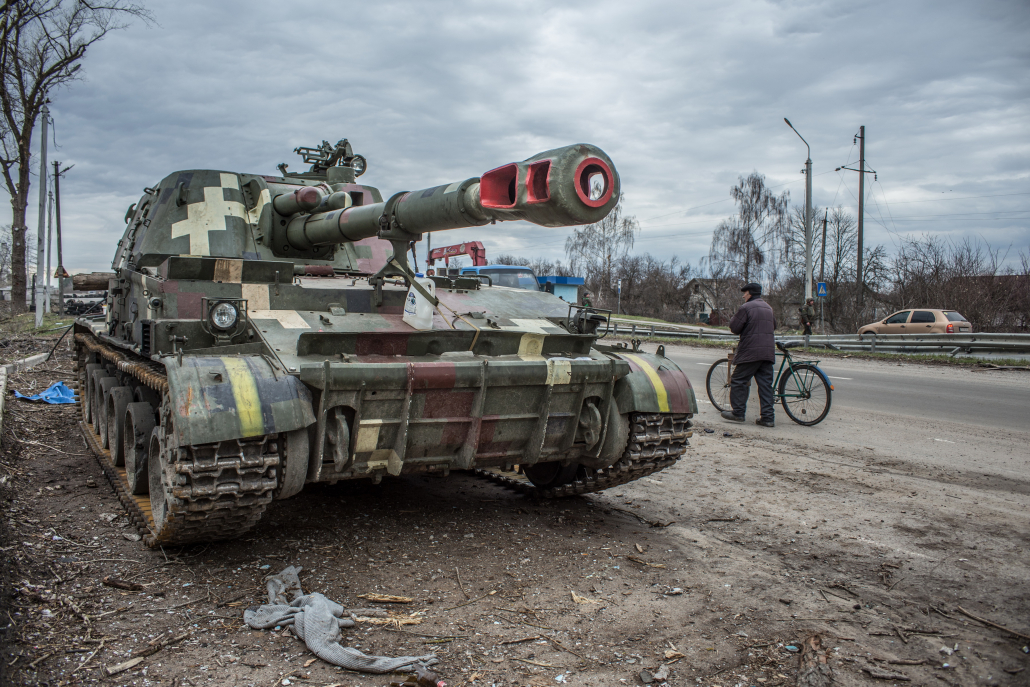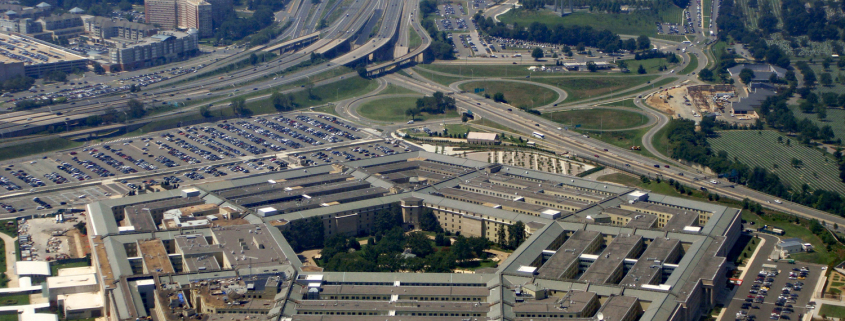Experts discuss leaked Pentagon papers

More than 100 documents containing sensitive information about United States national security secrets on Ukraine, the Middle East and China, circulated on social media sites Friday. The classified documents reveal the Pentagon’s extensive trove of data on its adversaries and allies, including Israel, South Korea and France. The Daily Trojan spoke with experts and students pertaining to the leaks, their impacts on U.S. diplomatic relations and the trajectory of the Russian invasion of Ukraine going forward.
Robert English, an associate professor of international relations, Slavic languages and literature and environmental studies, said the leaks were problematic in two ways: the information itself — details in the documents exposed sensitive information about the Ukrainian military and the status of its weaponry — and the allegations of espionage making the U.S. an international “embarrassment.”
“Everyone will presume that, even if there were only documents on [South Korea, Israel and France], we’re doing it to everybody — in other words, we are snooping on our allies,” English said. “So all of this is, at a minimum, irritating, and in some cases, really infuriating.”
Among the documents’ claims are that senior officials in Mossad, Israel’s security agency, “advocated for Mossad officials and Israeli citizens to protest against the new Israeli government’s proposed judicial reforms, including several explicit calls to action that decried the Israeli government, according to signals intelligence.” Prime Minister Benjamin Netanyahu denied this claim in a statement Sunday.
The documents also claim the U.S. spied on its allies in Seoul, amid ongoing pressures for Yoon Suk-yeol, president of South Korea, to supply weapons to Ukraine in violation of national policy. South Korean government officials said they would have necessary consultations with the U.S. side related to the leak.
English compared the severity of the leaks to when Edward Snowden leaked thousands of National Security Agency documents in 2013, revealing the U.S. was gathering extensive intelligence on France and Germany.
“And [now] it’s like, ‘Here we go again,’” English said. “Probably everyone knows we do it. Frankly, they do some of it as well. It just shouldn’t be revealed and cause embarrassment. Even if the South Koreans know that Big Brother America is probably poking around, [they would say,] ‘Please don’t rub it in our faces so that we are humiliated before an election, or so that we’re embarrassed right before a key parliamentary vote.”
Though The New York Times, which first reported the leaks, wrote that the documents surfaced on Twitter and Telegram, a separate investigation by Bellingcat published April 9 found that they had circulated as early as March. Photos of 10 documents emerged March 4 in a Discord server called “Minecraft Earth Map” — with a user interjecting in a seemingly unrelated conversation, saying, “here, have some leaked documents,” with the images attached. These later circulated to the fringe forum 4chan before emerging on mainstream social media channels.
“It’s … incredibly disturbing, and yet, at the same time, it’s comical and amusing,” English said. “This whole episode is something unprecedented in the world of espionage and intelligence.”
Classified documents leaks on gaming forums are precedented: Players of the video game “War Thunder” have posted multiple classified documents related to British, French and Chinese tanks since 2021. One user, the UK Defence Journal reported, posted such documents to encourage developers to make more accurate in-game tanks.

Copies of the documents obtained by The New York Times appeared to be altered, with U.S. estimates of Ukrainian war casualties overstated and numbers of Russian troops killed understated — modifications English said were “amateurish.”
“How strange to have information right out of the bowels of the Pentagon,” English said, “and then get out the white-out or the Photoshop and do a sloppy job of doctoring it … It’s not a professional Russian intelligence job. It’s some game-obsessed military history buff who literally has access inside the Pentagon … and he doesn’t even care about national security, Russia and Ukraine. He cares about winning an argument.”
The debacle comes amid an increasingly tense invasion-turned-war-of-attrition brutalizing Ukraine and its residents since it began in February 2022. Russia has continued its attacks on Ukrainian nuclear infrastructure, in addition to stacking its sustained threats of all-out nuclear warfare against its enemies. On Feb. 21, Vladimir Putin, president of Russia, announced in an address to the Federal Assembly that the state would be suspending its participation in its New START treaty with the U.S. — thought it did not withdraw, and has said it would continue to abide by the treaty’s numerical limits.
Najmedin Meshkati, a professor of civil and environmental engineering, attributed the suspension to a larger trend where countries break or withdraw from treaties “rather than engaging in active diplomacy and coming up with treaties and agreements.” Meshkati said the U.S. would rather exercise “preventive diplomacy” — for example, former Speaker of the House Nancy Pelosi’s surprise visit to Taiwan, and even the covert intelligence-gathering alleged in the leaked documents — absent a definitive diplomatic leader who could draft agreements during tense times.
“I really think that we need a very skillful diplomat,” Meshkati said. “If people in the same league as [Henry] Kissinger and [Tom] Pickering were still active, I think we would have seen a better situation.”
Meshkati cited Kissinger’s success in convincing China and the U.S. to sign the 1972 Shanghai Communique at the height of the Cold War. The finalized communique states that, though there were “essential differences between China and the United States in their social systems and foreign policies,” the two nations “should conduct their relations on the principles of respect.”
“Even if they’re from adversarial countries, if a diplomat is skillful enough — if he is tactful enough, if he knows the rules of negotiation — they can bridge the gap,” Meshkati said. “We need to find and empower and enable that. Unfortunately, I see a lot of technocrats in Washington, but not a true diplomat with all nuances. Maybe this is the tragedy of our time.”
As even the United Nations Secretary-General doubts that Russia and Ukraine (and by proxy, the U.S.) will negotiate with Russia anytime soon, the future of the war, and of U.S. diplomatic relations, remains uncertain.
“I think it’s hard to know exactly how those countries will interact with us,” said John Belton, a sophomore majoring in public policy and a former legislative intern in the U.S. House of Representatives. “Israel [especially] relies so much on United States aid and … all the stuff that the United States gives to Israel. It’s hard for them to take a very hard stance against this.”
Meanwhile, Russia is facing criticism itself for a slew of transgressions, including the alleged kidnapping of Ukrainian children to be put up for adoption, the detainment of Wall Street Journal reporter Evan Gershkovich and the apparent beheading of a Ukrainian prisoner of war with a knife, according to footage that surfaced Wednesday.
“Every time something happens … to introduce doubt about the war effort, the Russians go and do something outrageous, and then everyone’s on board again,” English said. “Putin seems to have a flair for shooting himself in the foot. Perhaps that kind of outrage will balance out the anger over the eavesdropping and over the distortion of the battle news.”

